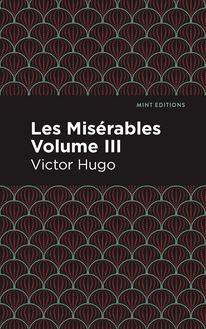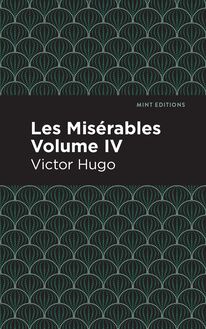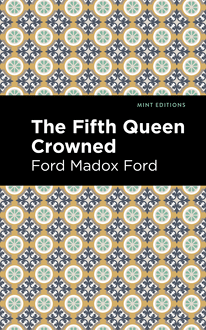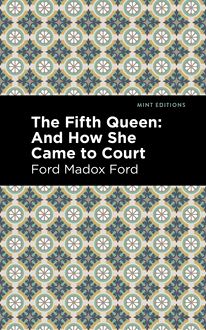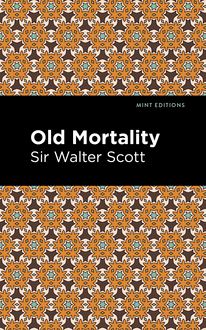-
 Univers
Univers
-
 Ebooks
Ebooks
-
 Livres audio
Livres audio
-
 Presse
Presse
-
 Podcasts
Podcasts
-
 BD
BD
-
 Documents
Documents
-
- Cours
- Révisions
- Ressources pédagogiques
- Sciences de l’éducation
- Manuels scolaires
- Langues
- Travaux de classe
- Annales de BEP
- Etudes supérieures
- Maternelle et primaire
- Fiches de lecture
- Orientation scolaire
- Méthodologie
- Corrigés de devoir
- Annales d’examens et concours
- Annales du bac
- Annales du brevet
- Rapports de stage
La lecture à portée de main
Vous pourrez modifier la taille du texte de cet ouvrage
Découvre YouScribe en t'inscrivant gratuitement
Je m'inscrisDécouvre YouScribe en t'inscrivant gratuitement
Je m'inscrisEn savoir plus
Vous pourrez modifier la taille du texte de cet ouvrage
En savoir plus

Description
The Good Soldier (1915) is a novel by Ford Madox Ford. Set just before the First World War, the novel is superficially the story of Edward Asburnham, a man with a reputation for philandering. Considered an important proto-modernist novel, The Good Soldier employs a fragmented narrative told by an unreliable narrator who appears at times as distant, gossipy, voyeuristic, and even vindictive. Praised as one of the greatest English-language novels of the century, The Good Soldier remains Ford’s most popular work. John Dowell has secrets. Married for nine years to a serially unfaithful woman, friends with a man who falls in love at first sight with every woman he meets, he lives an exciting life without ever doing much himself. As he sorts through his memories, revealing the sordid details of his loved ones’ private lives, it becomes clear that Dowell is haunted by tragedy. His psychological state, shaped by years of jealousy and paranoia, reveals the soul of a man without faith, thrown from one betrayal to the next by his manipulative wife. But how could he fail to see what was right under his nose? Can a man truly be as innocent as Dowell claims to be? The Good Soldier is a masterpiece of English fiction that poses timeless questions regarding friendship, fidelity, and sexuality. With a beautifully designed cover and professionally typeset manuscript, this edition of Ford Madox Ford’s The Good Soldier is a classic work of British literature reimagined for modern readers.
Sujets
Informations
| Publié par | Mint Editions |
| Date de parution | 03 août 2021 |
| Nombre de lectures | 0 |
| EAN13 | 9781513293615 |
| Langue | English |
Informations légales : prix de location à la page 0,0500€. Cette information est donnée uniquement à titre indicatif conformément à la législation en vigueur.
Extrait
The Good Soldier
Ford Madox Ford
The Good Soldier was first published in 1915.
This edition published by Mint Editions 2021.
ISBN 9781513290768 | E-ISBN 9781513293615
Published by Mint Editions®
minteditionbooks.com
Publishing Director: Jennifer Newens
Design & Production: Rachel Lopez Metzger
Project Manager: Micaela Clark
Typesetting: Westchester Publishing Services
C ONTENTS P ART I I II III IV V VI P ART II I II P ART III I II III IV V P ART IV I II III IV V VI
PART I
I
T his is the saddest story I have ever heard. We had known the Ashburnhams for nine seasons of the town of Nauheim with an extreme intimacy—or, rather with an acquaintanceship as loose and easy and yet as close as a good glove’s with your hand. My wife and I knew Captain and Mrs. Ashburnham as well as it was possible to know anybody, and yet, in another sense, we knew nothing at all about them. This is, I believe, a state of things only possible with English people of whom, till today, when I sit down to puzzle out what I know of this sad affair, I knew nothing whatever. Six months ago I had never been to England, and, certainly, I had never sounded the depths of an English heart. I had known the shallows.
I don’t mean to say that we were not acquainted with many English people. Living, as we perforce lived, in Europe, and being, as we perforce were, leisured Americans, which is as much as to say that we were un-American, we were thrown very much into the society of the nicer English. Paris, you see, was our home. Somewhere between Nice and Bordighera provided yearly winter quarters for us, and Nauheim always received us from July to September. You will gather from this statement that one of us had, as the saying is, a “heart”, and, from the statement that my wife is dead, that she was the sufferer.
Captain Ashburnham also had a heart. But, whereas a yearly month or so at Nauheim tuned him up to exactly the right pitch for the rest of the twelvemonth, the two months or so were only just enough to keep poor Florence alive from year to year. The reason for his heart was, approximately, polo, or too much hard sportsmanship in his youth. The reason for poor Florence’s broken years was a storm at sea upon our first crossing to Europe, and the immediate reasons for our imprisonment in that continent were doctor’s orders. They said that even the short Channel crossing might well kill the poor thing.
When we all first met, Captain Ashburnham, home on sick leave from an India to which he was never to return, was thirty-three; Mrs. Ashburnham—Leonora—was thirty-one. I was thirty-six and poor Florence thirty. Thus today Florence would have been thirty-nine and Captain Ashburnham forty-two; whereas I am forty-five and Leonora forty. You will perceive, therefore, that our friendship has been a young-middle-aged affair, since we were all of us of quite quiet dispositions, the Ashburnhams being more particularly what in England it is the custom to call “quite good people”.
They were descended, as you will probably expect, from the Ashburnham who accompanied Charles I to the scaffold, and, as you must also expect with this class of English people, you would never have noticed it. Mrs. Ashburnham was a Powys; Florence was a Hurlbird of Stamford, Connecticut, where, as you know, they are more old-fashioned than even the inhabitants of Cranford, England, could have been. I myself am a Dowell of Philadelphia, Pa., where, it is historically true, there are more old English families than you would find in any six English counties taken together. I carry about with me, indeed—as if it were the only thing that invisibly anchored me to any spot upon the globe—the title deeds of my farm, which once covered several blocks between Chestnut and Walnut Streets. These title deeds are of wampum, the grant of an Indian chief to the first Dowell, who left Farnham in Surrey in company with William Penn. Florence’s people, as is so often the case with the inhabitants of Connecticut, came from the neighbourhood of Fordingbridge, where the Ashburnhams’ place is. From there, at this moment, I am actually writing.
You may well ask why I write. And yet my reasons are quite many. For it is not unusual in human beings who have witnessed the sack of a city or the falling to pieces of a people to desire to set down what they have witnessed for the benefit of unknown heirs or of generations infinitely remote; or, if you please, just to get the sight out of their heads.
Some one has said that the death of a mouse from cancer is the whole sack of Rome by the Goths, and I swear to you that the breaking up of our little four-square coterie was such another unthinkable event. Supposing that you should come upon us sitting together at one of the little tables in front of the club house, let us say, at Homburg, taking tea of an afternoon and watching the miniature golf, you would have said that, as human affairs go, we were an extraordinarily safe castle. We were, if you will, one of those tall ships with the white sails upon a blue sea, one of those things that seem the proudest and the safest of all the beautiful and safe things that God has permitted the mind of men to frame. Where better could one take refuge? Where better?
Permanence? Stability? I can’t believe it’s gone. I can’t believe that that long, tranquil life, which was just stepping a minuet, vanished in four crashing days at the end of nine years and six weeks. Upon my word, yes, our intimacy was like a minuet, simply because on every possible occasion and in every possible circumstance we knew where to go, where to sit, which table we unanimously should choose; and we could rise and go, all four together, without a signal from any one of us, always to the music of the Kur orchestra, always in the temperate sunshine, or, if it rained, in discreet shelters. No, indeed, it can’t be gone. You can’t kill a minuet de la cour. You may shut up the music-book, close the harpsichord; in the cupboard and presses the rats may destroy the white satin favours. The mob may sack Versailles; the Trianon may fall, but surely the minuet—the minuet itself is dancing itself away into the furthest stars, even as our minuet of the Hessian bathing places must be stepping itself still. Isn’t there any heaven where old beautiful dances, old beautiful intimacies prolong themselves? Isn’t there any Nirvana pervaded by the faint thrilling of instruments that have fallen into the dust of wormwood but that yet had frail, tremulous, and everlasting souls?
No, by God, it is false! It wasn’t a minuet that we stepped; it was a prison—a prison full of screaming hysterics, tied down so that they might not outsound the rolling of our carriage wheels as we went along the shaded avenues of the Taunus Wald.
And yet I swear by the sacred name of my creator that it was true. It was true sunshine; the true music; the true splash of the fountains from the mouth of stone dolphins. For, if for me we were four people with the same tastes, with the same desires, acting—or, no, not acting—sitting here and there unanimously, isn’t that the truth? If for nine years I have possessed a goodly apple that is rotten at the core and discover its rottenness only in nine years and six months less four days, isn’t it true to say that for nine years I possessed a goodly apple? So it may well be with Edward Ashburnham, with Leonora his wife and with poor dear Florence. And, if you come to think of it, isn’t it a little odd that the physical rottenness of at least two pillars of our four-square house never presented itself to my mind as a menace to its security? It doesn’t so present itself now though the two of them are actually dead. I don’t know…
I know nothing—nothing in the world—of the hearts of men. I only know that I am alone—horribly alone. No hearthstone will ever again witness, for me, friendly intercourse. No smoking-room will ever be other than peopled with incalculable simulacra amidst smoke wreaths. Yet, in the name of God, what should I know if I don’t know the life of the hearth and of the smoking-room, since my whole life has been passed in those places? The warm hearthside!—Well, there was Florence: I believe that for the twelve years her life lasted, after the storm that seemed irretrievably to have weakened her heart—I don’t believe that for one minute she was out of my sight, except when she was safely tucked up in bed and I should be downstairs, talking to some good fellow or other in some lounge or smoking-room or taking my final turn with a cigar before going to bed. I don’t, you understand, blame Florence. But how can she have known what she knew? How could she have got to know it? To know it so fully. Heavens! There doesn’t seem to have been the actual time. It must have been when I was taking my baths, and my Swedish exercises, being manicured. Leading the life I did, of the sedulous, strained nurse, I had to do something to keep myself fit. It must have been then! Yet even that can’t have been enough time to get the tremendously long conversations full of worldly wisdom that Leonora has reported to me since their deaths. And is it possible to imagine that during our prescribed walks in Nauheim and the neighbourhood she found time to carry on the protracted negotiations which she did carry on between Edward Ashburnham and his wife? And isn’t it incredible that during all that time Edward and Leonora never spoke a word to each other in private? What is one to think of humanity?
For I swear to you that they were the model couple. He was as devoted as it was possible to be without appearing fatuous. So well set up, with such honest blue eyes, such a touch of stupidity, such a warm goodheartedness! And she—so tall, so splendid in the saddle, so fair! Yes, Leonora was extraordinarily fair and so extraordinarily the real thing that she seemed too good to be true. You don’t, I mean, as a rule, get it all so superlatively
-
 Univers
Univers
-
 Ebooks
Ebooks
-
 Livres audio
Livres audio
-
 Presse
Presse
-
 Podcasts
Podcasts
-
 BD
BD
-
 Documents
Documents
-
Jeunesse
-
Littérature
-
Ressources professionnelles
-
Santé et bien-être
-
Savoirs
-
Education
-
Loisirs et hobbies
-
Art, musique et cinéma
-
Actualité et débat de société
-
Jeunesse
-
Littérature
-
Ressources professionnelles
-
Santé et bien-être
-
Savoirs
-
Education
-
Loisirs et hobbies
-
Art, musique et cinéma
-
Actualité et débat de société
-
Actualités
-
Lifestyle
-
Presse jeunesse
-
Presse professionnelle
-
Pratique
-
Presse sportive
-
Presse internationale
-
Culture & Médias
-
Action et Aventures
-
Science-fiction et Fantasy
-
Société
-
Jeunesse
-
Littérature
-
Ressources professionnelles
-
Santé et bien-être
-
Savoirs
-
Education
-
Loisirs et hobbies
-
Art, musique et cinéma
-
Actualité et débat de société
- Cours
- Révisions
- Ressources pédagogiques
- Sciences de l’éducation
- Manuels scolaires
- Langues
- Travaux de classe
- Annales de BEP
- Etudes supérieures
- Maternelle et primaire
- Fiches de lecture
- Orientation scolaire
- Méthodologie
- Corrigés de devoir
- Annales d’examens et concours
- Annales du bac
- Annales du brevet
- Rapports de stage


